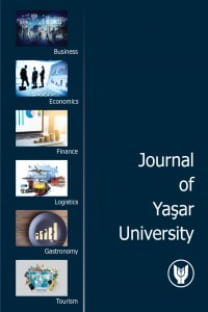A COHERENT AND EFFECTİVE FOREIGN AND SECURITY POLİCY FOR THE EUROPEAN UNİON? : THE CASES OF THE YUGOSLAV CRİSİS AND THE IRAQ CRİSİS
-
A COHERENT AND EFFECTİVE FOREIGN AND SECURITY POLİCY FOR THE EUROPEAN UNİON? : THE CASES OF THE YUGOSLAV CRİSİS AND THE IRAQ CRİSİS
The European Union, Coherence, Effectiveness, Yugoslav Crisis Iraq Crisis,
___
- Abellan, Miguel Angel Medina (2002), The Coherence of the European Foreign Policy: a Real Barrier of an Academic Term, Institut Universitari D’estudis Europeus Working Paper, No. 27.
- Brenner, Michael (2003), The CFSP Factor: A Comparison of United States and French Strategies, Cooperation and Conflict, Journal of Nordic International Studies Association, Vol. 38, No. 3, 187-209.
- Crowe, Brian (2003), A Common European Foreign Policy After Iraq?, International Affairs, Vol.79, no. 3, 533–546.
- Crowe, Brian (2004), A Common European Foreign Policy After Iraq?, in: Holland, Martin (ed.), Common Foreign and Security Policy: The First Ten Years, London: Continuum, 28-43.
- Dalgaard-Nielsen, Anja (2003), Gulf War: The German Resistance, Survival, Vol. 45, No. 1, 99-116.
- Dittrich, Mirjam (2003), Europe in the World, EU-Iraq: A Brief Chronology, Working Papers, http://www.theepc.net.
- Duke, Simon (1999), Consistency as an Issue in EU External Relations, Working Paper, European Institute of Public Administration, No. 6.
- Ginsberg, Roy H. (2001), The European Union in International Politics: Baptism By Fire, USA: Rowman&Littlefield Publishers Inc.
- Ginsberg, Roy H. (2002), Ten Years of European Union Foreign Policy, Baptism, Confirmation, Validation, Heinrich Böll Foundation, Washington Office.
- Grant, Charles (2001), A Stronger European Foreign and Defence Policy, in: Bannerman, Edward et.al. (eds.), Europe After September 11, London: CER, 31-48. th
- Grant, Charles (2002), The Eleventh September and Beyond: The Impact on the European Union, The Political Quarterly, Vol. 73, Iss. 1, 135-153.
- Hill, Christopher (1993), The Capability-Expectations Gap, or Conceptualizing Europe’s International Role, Journal of Common Market Studies, Vol. 31, No.3, 305- 328.
- Hill, Christopher (2004), Renationalizing or Regrouping? EU Foreign Policy Since 11 September 2001, Journal of Common Market Studies, Vol. 42, No.1, 143-163.
- Kaya, Taylan Özgür (2005), Constituting the Common Foreign and Security Policy: The European Union’s Pursuit of Being a Coherent and Effective Foreign and Security Policy Actor in Global Politics, Akdeniz İİBF Dergisi, Vol. 5, No. 9, 123-153. Available at http://www.akdeniz.edu.tr/iibf/dergi/Sayi09/11Kaya.pdf.
- Kintis, G., Andreas (1999), Between Ambition and Paralysis: The European Union’s Common Foreign and Security Policy and the War in the Former Yugoslavia, in: Hodge, Carl Cavanagh (ed.), Redefining European Security, New York: Garland Publishing, 273-298.
- Missiroli, Antonio (2001), European Security Policy: The Challenge of Coherence, European Foreign Affairs Review, Vol. 6, Iss 2, 177-196.
- Mulay-Shah, Aziz (2001), Kantian dreams, A Constructivist Critique of Mainstream Research on Political Cooperation Within Europe, Paper presented at the Graduate Workshop of the Jean Monnet Center for European Studies, University of Wales, Aberystwyth, 22-25 April. http://web.uvic.ca/hrdceu/documents/Kantian .doc.
- Nuttall, Simon J. (2000), European Foreign Policy, United States: Oxford University Press.
- Salmon, Trevor J. (1992), Testing Times for European Political Cooperation: the Gulf and Yugoslavia, 1990-1992, International Affairs, Vol. 68, No. 2, 233-253.
- Sjursen, Helene (2003), Understanding The Common Foreign and Security Policy: Analytical Building Blocs, in: Knodt, Michéle and Princen, Sebastiaan (eds.), Understanding the European Union’s External Relations, London: Routledge, 35-53.
- Smith, Michael E. (2004), Europe’s Foreign and Security Policy: The Institutionalization of Cooperation, Cambridge: Cambridge University Press.
- Tonra, Ben (2003), Constructing the Common Foreign and Security Policy: The Utility of a Cognitive Approach, Journal of Common Market Studies, Vol. 41, No. 4, 731-756.
- Wyatt-Walter, Holly (1997), The European Community and Security Dilemma,1979- 1992, Macmillan Press: London.
- ISSN: 1305-970X
- Başlangıç: 2006
- Yayıncı: Yaşar Üniversitesi
DÜNYADA VE TÜKİYE SÜRDÜRÜLEBİLİR KALKINMA YAKLAŞIMLARI
Mehmet Emre GULER, Mehmet Emre GÜLER
AB-AKDENİZ BÖLGESEL POLİTİKALARI VE TÜRKİYE'NİN UYUMU
AB-AKDENİZ BÖLGESEL POLİTİKALARI VE TÜRKİYE'NİN UYUMU
Mustafa Taskin Uğur Caligulu Halil DIKBAS
Aylin Göztaş Nahit Erdem Köker Mine Ye ALEMDAR
DEVELOPMENT OF INDEPENDENT AUDITING IN STATE BANKS IN TURKEY FROM PAST TO FUTURE
